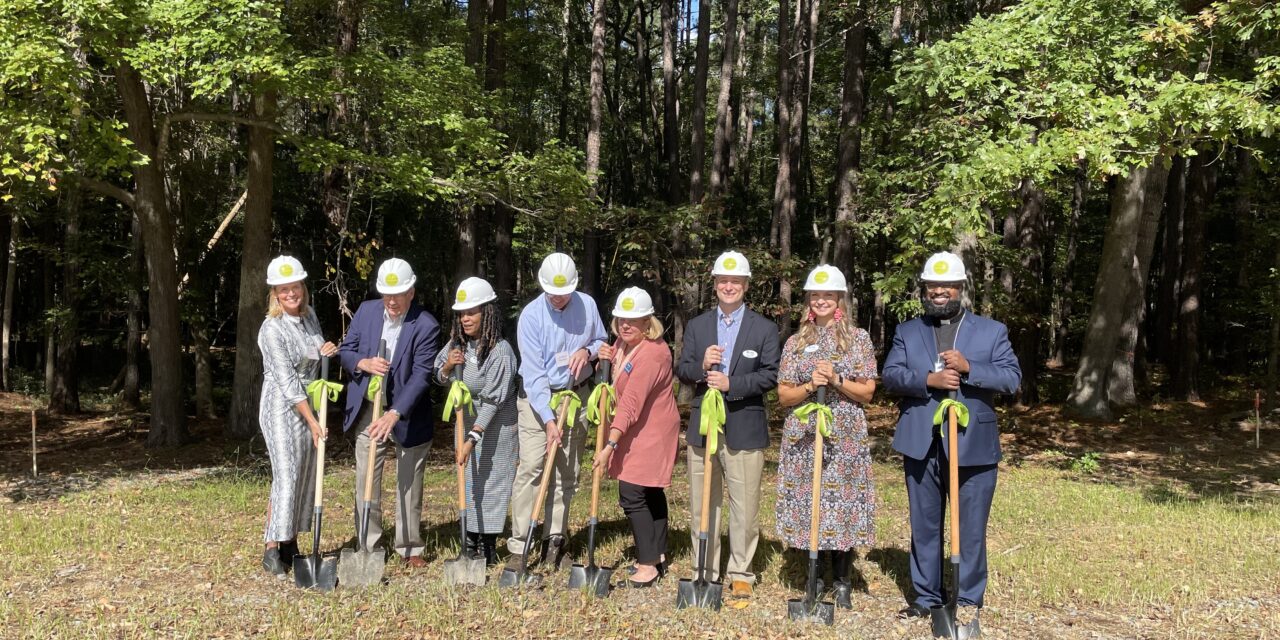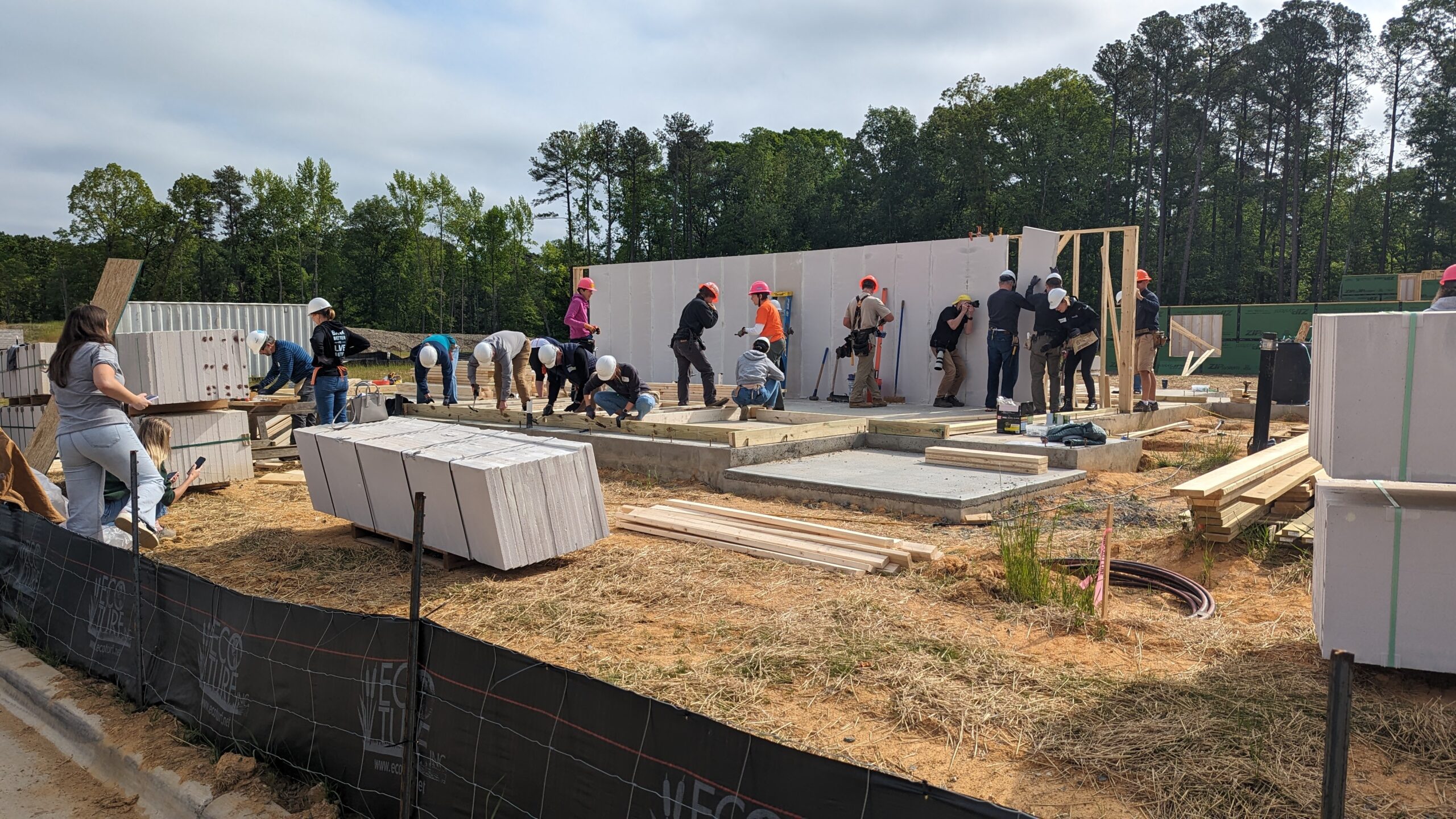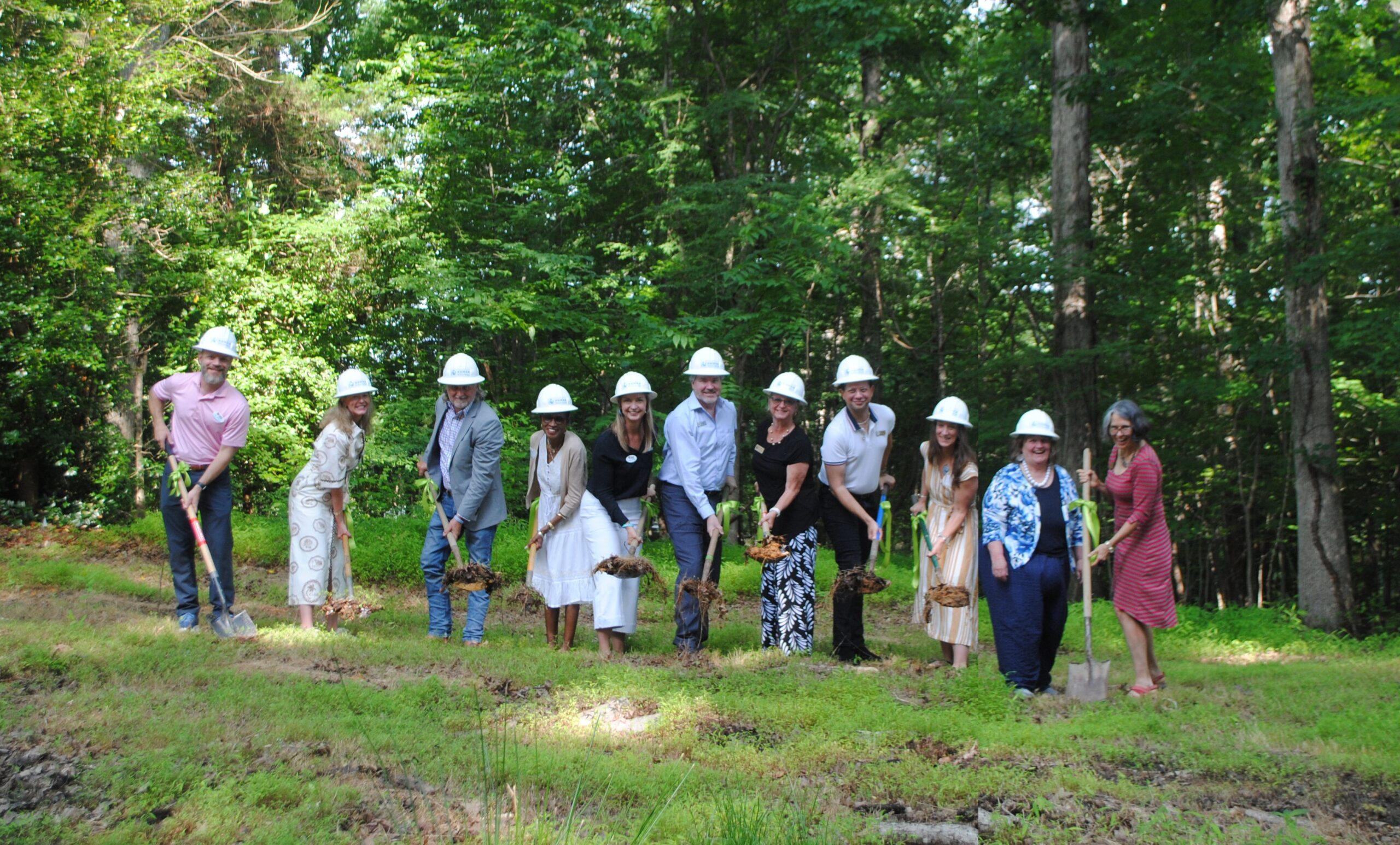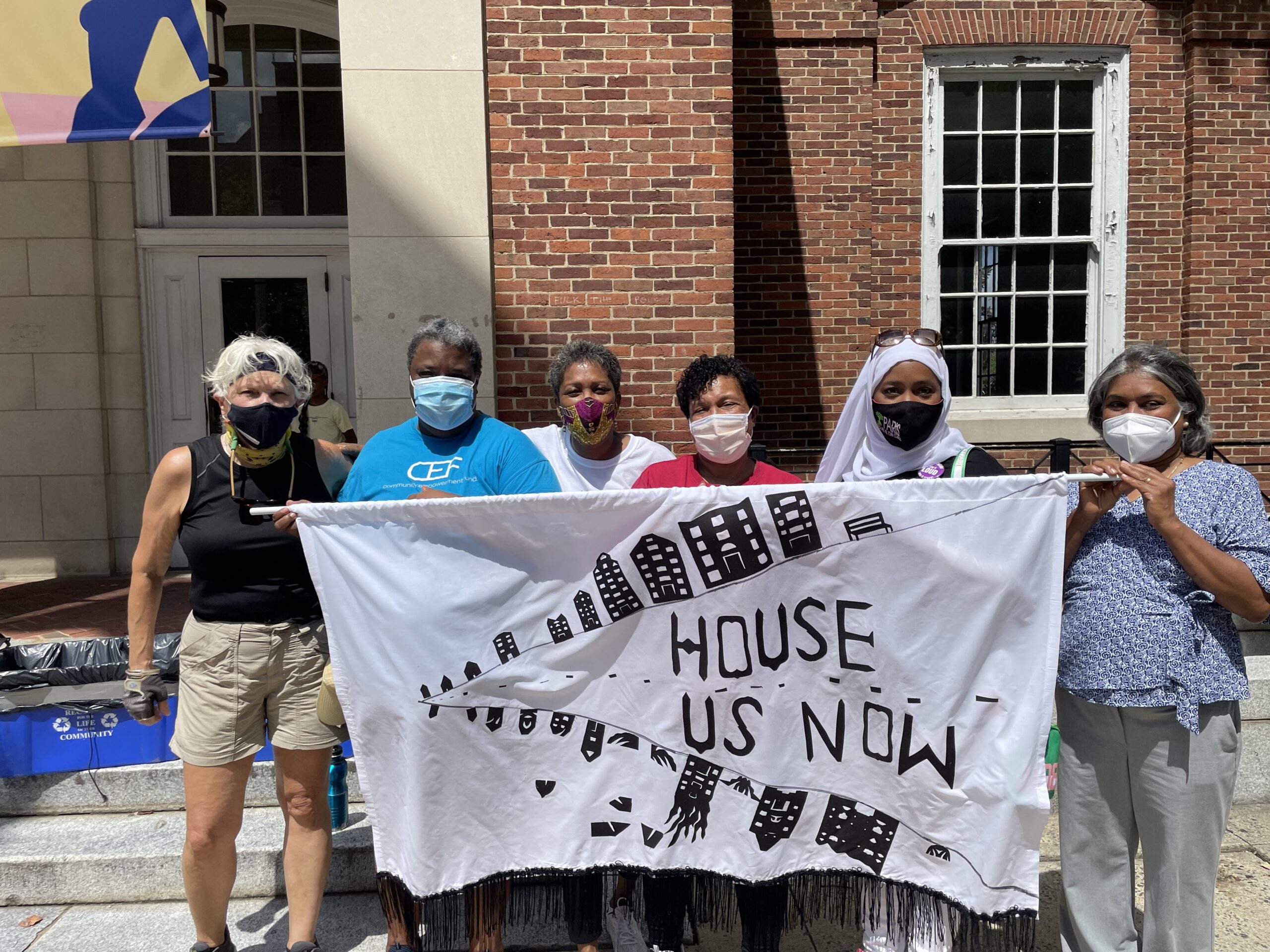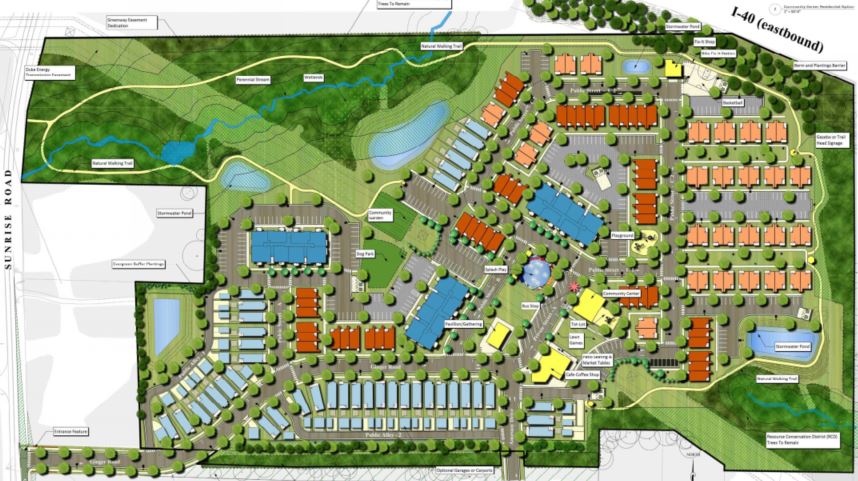After years of debate and planning, the Town of Chapel Hill and Orange County Habitat for Humanity broke ground on the Weaver’s Grove community on Sunday. The mixed-use development will provide 101 affordable homes, additional market rate housing and other amenities to the Chapel Hill community.
Since 2002, the 32-acre plot of land off Sunrise Road has been the site of the Weaver’s Grove community. The development received unanimous town council approval for conditional zoning of the site in June of 2020. So, 19 years after the land was first purchased by Orange County Habitat for Humanity, the construction of the 237 total housing units is finally under way.
C.E.O. and President of Orange County Habitat, Jennifer Player, told 97.9 The Hill she believes the development reflects the values of Chapel Hill.
“We wanted to create a community that was diverse. That wasn’t just all Habitat homes but really included a lot of diversity from income levels to races, backgrounds, experiences, etc.,” Player said.
Player said she wants Weavers Grove to be a national model for mixed-use development. Project manager Bruce Ballentine agreed. He said combining Habitat homes, market rate developers and community amenities is something worth copying nationwide.
“I think it will be something that will be replicated in the future. Most of us think of Habitat as building a home here or a home there. But building a community, this is something that is different for our part of the world and maybe even elsewhere around the country,” Ballentine said.
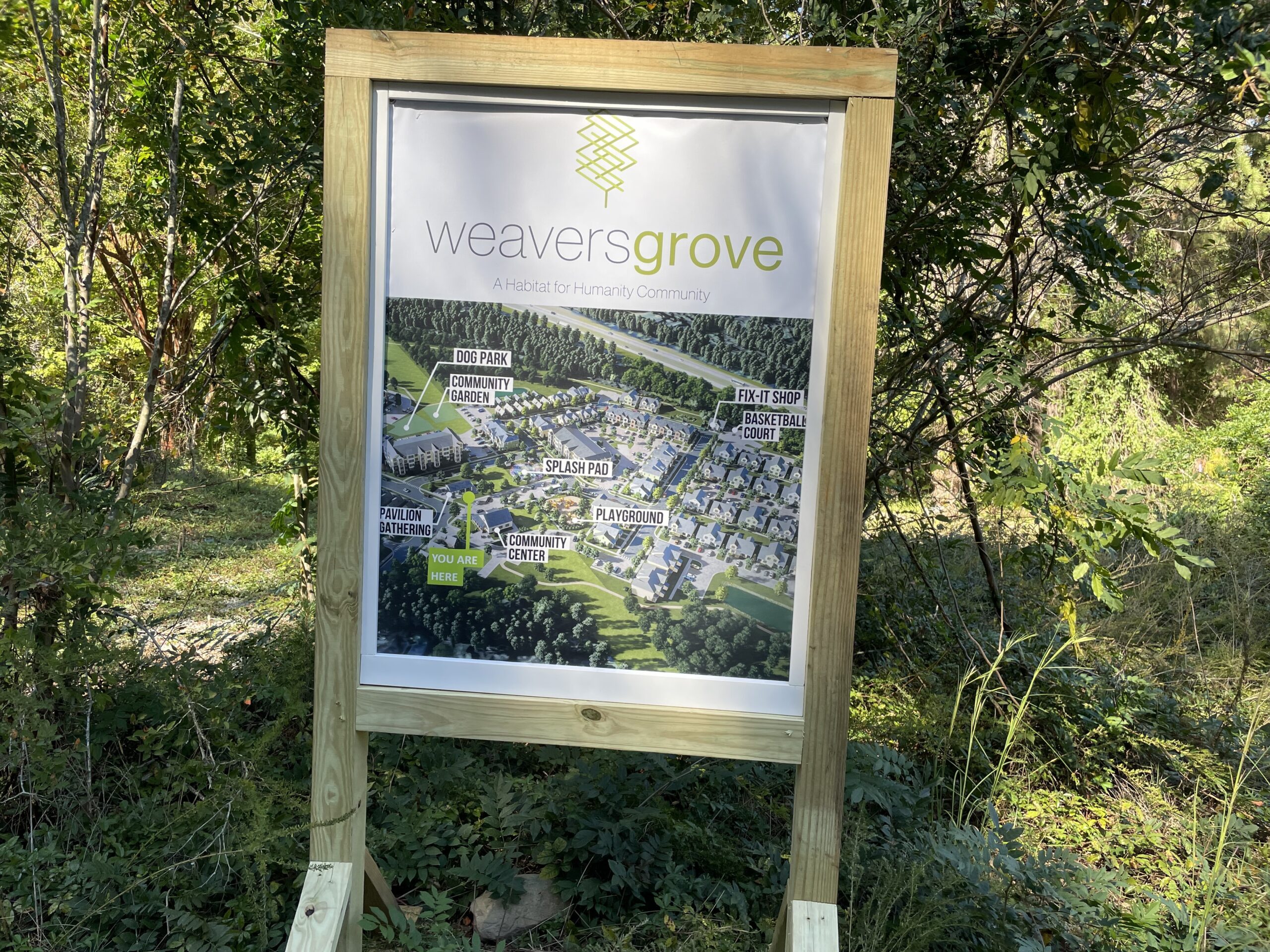
A map of Weavers Grove shows the various amenities the community will have including a splash park, walking trails and community garden.
Studies show mixed-income communities lead to better economic stability, educational opportunities and increased upward mobility among lower income residents.
Ballentine said he and his team kept that the research in the design process to create a place “anyone would want to live in.”
A recent study from the Town of Chapel Hill found 90 percent of jobs in the town are filled by commuters, while more than 60 percent of Chapel Hill residents leave town for work. Player said this is a sign that there is a housing crisis in Chapel Hill because people who work lower paying jobs cannot afford to live here.
The current average housing price in Chapel Hill is $475,000, according to Realtor.com. The affordable homes in Weavers Grove built by Habitat will sell for between 30 percent and 80 percent of area median income. While AMI differs based on the size of the family purchasing the home, it means a family of four with an income between $70,000 and $15,000 could qualify for a Habitat home at Weavers Grove.
C.E.O. of Habitat for Humanity International, Jonathan Reckford, was at the groundbreaking ceremony. He said Weavers Grove is a small step toward solving the commuter issue in Chapel Hill.
“Everybody is better off if we can have more people that can live close to where they work,” Reckford said. “To me, Weavers Grove is a shining example of what is possible when people come together to solve a really critical problem.”
As a native of Chapel Hill himself, Reckford said he was frustrated this project took nearly two decades to finally get going. He said he believes the delays were based in a lack of understanding for the type of community Weavers Grove could create.
“There is a sad reality all across the country, and world. Many people know the idea of NIMBY, not-in-my-backyard, well I think there is a lot of misunderstanding,” Reckford said. “I am very optimistic, but sadly one of the reasons it has taken so long is misunderstanding and opposition and now I’m really encouraged to see the change. When you look at this plan, I think the neighbors are going to be encouraged to come over into this community because it’s going to be a wonderful place to be.”
Although the project took a long time to come to fruition, Player said the wait was worth it because it resulted in the best possible outcome.
“Nineteen years later we look, and we see that land is so scarce in Chapel Hill. In order for us to really be good stewards of the land, we really need more types of housing for more types of people on the site,” Player said. “I really think this project now, in its current iteration is really what it was always meant to be.”
Weavers Grove is the largest undertaking of Orange County Habitat, 101 affordable homes is double the size of its next biggest development at Phoenix Place. To accomplish this feat, Orange County Habitat is preparing to increase new home construction from 12 homes per year in 2019 to 20 homes per year in 2022.
Player said this increased effort is worth it because she believes this is about more than building homes, it’s about building community.
“I think about the seniors who are going to be able to get exercise on the walking trails. I think about the relationships that are going to be formed sitting around the fire pit, or at the dog park,” Player said. “Really, its a new way of living together as neighbors. So many of our communities live around like ourselves and so our kids grow up around people who are the same race, the same socioeconomic background. To me, that vibrancy and that education those kids will get interacting with so many different types of people, that is the heart of what we are trying to do.”
As dirt moves on Weavers Grove, it aims to live up to its motto: strengthening the fabric of our community.
The first homes are expected to begin construction in the spring of 2023.
For more information about the development click here.
Chapelboro.com does not charge subscription fees. You can support local journalism and our mission to serve the community. Contribute today – every single dollar matters.

